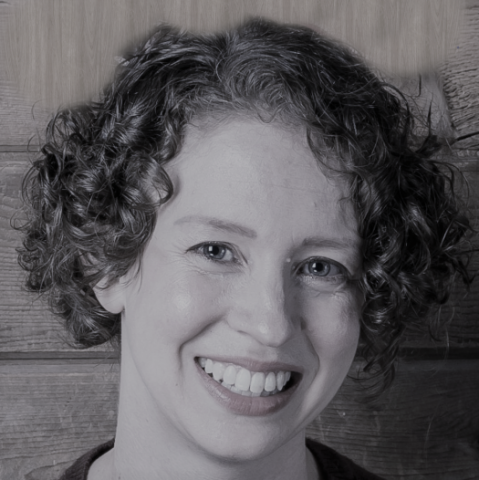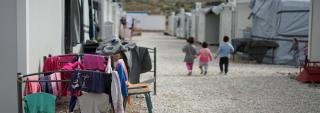
A PhD candidate at Allard Law, Siobhan Yorgun is looking to unmask a bias in the way refugee law is studied. In her doctoral dissertation, she illustrates the impact of this bias in creating a distorted knowledge of refugee law.
“Refugee law studies tend to focus on the asylum adjudications of Western host states. Yet the majority of refugees seek refuge in the Global South,” said Siobhan.
Siobhan grew up in South Africa where she received both her BA and LLM from the University of the Witwatersrand, South Africa. She went on to purse an Advanced LLM in Public International Law from Leiden University, in the Netherlands.
During and subsequent to her studies, Siobhan worked within the university’s pro bono Refugee Law Clinic. Her professional experience includes working for a law firm in South Africa, a language school in Turkey, and the International Criminal Court in The Hague, Netherlands. Siobhan was admitted as an attorney in 2013 and is a member of the Law Society of the Northern Provinces, South Africa. She is currently studying her PhD in Refugee law under Catherine Dauvergne with a particular focus on ostracized women.
Learn more about Siobhan and her research.
Why did you decide to pursue graduate studies?
After working in a corporate law setting, I knew that my heart was really in research. Looking for a PhD also presented me with a privileged opportunity to think about where in the world I wanted to be.
What attracted you to Allard Law?
My area of interest is refugee law and really it was about the opportunity to work with Catherine Dauvergne. The Vancouver setting didn't hurt either!
My research points to an unacknowledged bias in the study of (international) refugee law which predominantly focuses on the adjudication of asylum cases in Western hosts states.
Can you tell us a bit more about your doctoral research?
My research identifies relevant distortions in the current study of refugee law, including the neglect of the nexus between economics and experiences of persecution, especially of continuing persecution within host states. I problematize the reliance on an identity-politics framing of persecuted identities in the study and application of refugee law, which especially disadvantages refugees with intersectional vulnerabilities.
In what ways would your research make an impact?
My research points to an unacknowledged bias in the study of (international) refugee law which predominantly focuses on the adjudication of asylum cases in Western hosts states. Since the vast majority of refugees are located in the Global South, this limits and distorts our knowledge of refugee law as applied to the majority of refugee lives. This has particular consequences for some of the most vulnerable and least mobile refugees. My research calls for an acknowledgment of this bias in knowledge production and for the study of more and different host states, for a more holistic view of refugee law.
What informed your current research focus?
I worked in a refugee law clinic at my university where I completed my LLB in South Africa, first as a student counsellor and then as a full-time volunteer. My passion had always been for human rights law and learning about the workings of refugee law and the people I met gave that passion a very concrete expression. Studying abroad, it also became clear to me how differently positioned research based on different perceptions of 'normal' legal systems could come to very different conclusions.
What has been the highlight of your time at Allard and UBC?
I really enjoyed the engaged and in-depth discussions with my lovely classmates in our legal theory class in our first year, it felt indulgently nerdy! But the highlight of my time has to be that while studying and living on UBC, I had my 3 children.
What challenges have you faced so far in the course of your studies and how did you overcome them?
Studying and raising small children is a busy and partly insane project. My husband stayed home and helped with the care of our children. I could not have done it without him.
What strategies have you adopted to help you through graduate school?
A PhD can be lonely, having a good supervisor and good friends amongst your cohort is gold. It is also challenging to be so much on your own schedule - never quite feeling like you're 'working' and never on holiday. Because of my childcare responsibilities I kept a very tight schedule, with a limited number of hours for thesis work so those hours had to be efficient, and there was a distinct 'on/off' time.
What do you do for fun?
I love walking around the beautiful beaches and neighborhoods of this city ... and collapsing in front of a sci-fi…



